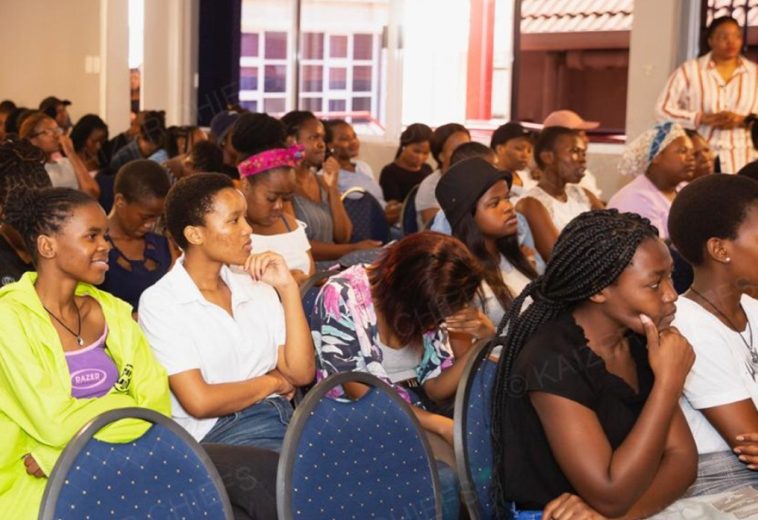As Africa prepares to crown its undisputed king of football on 16 December 2024 in Marrakech, Morocco, the stage is set for a grand celebration. The event, instituted by the Confederation of African Football (CAF), honours the top players, coaches, and clubs in African football for achievements between January and October 2024.
It is crucial to reflect on the history of the CAF Awards, their significance in African football, and the hopeful nominees for this year’s edition as the countdown begins.
READ ALSO: CAF Awards 2023: A Glorious Night for Africa
The History of the CAF Awards
Established in 1957, CAF serves as the governing body for football in Africa. It organises major tournaments, including the Africa Cup of Nations (AFCON), and oversees national associations. While CAF began naming the African Footballer of the Year in 1992, the CAF Awards were officially launched in 2000. Before then, the French magazine France Football awarded a prize for the continent’s best male player, with Mali’s Salif Keita being the inaugural winner in 1970. The CAF Awards now celebrate excellence in both men’s and women’s football annually.
Since 1992, the African Footballer of the Year award has been bestowed upon numerous players who have significantly influenced African football on the global stage. Notable past winners include:
Abedi Pele (Ghana): Winner in 1991, 1992, and 1993, he was among the first African stars to achieve international acclaim, helping spotlight African talent in Europe.
Rashidi Yekini (Nigeria): The first Nigerian to win the award, in 1993, Yekini was a prolific striker known for his powerful shots and acrobatic goals, scoring 37 times for Nigeria in international matches.
George Weah (Liberia): Winner in 1995, Weah became the first African to claim the FIFA World Player of the Year award, demonstrating the global potential of African players.
Nwankwo Kanu (Nigeria): A two-time winner (1996 and 1999), Kanu earned his first award after captaining Nigeria to Olympic gold, famously scoring two late goals against Brazil in the semi-finals. Despite battling a heart condition, he triumphed in the UEFA Champions League and the English Premier League with Arsenal.
Samuel Eto’o (Cameroon): A four-time winner (2003, 2004, 2005, and 2010), Eto’o’s success, particularly with Barcelona, showcased African players’ competitiveness in top European leagues.
Yaya Touré (Ivory Coast): A two-time winner (2011 and 2012), Touré was pivotal to Manchester City’s rise in English football, further elevating the status of African players.
Mohamed Salah (Egypt): Salah’s consecutive wins in 2017 and 2018 and his stellar performances in the Premier League have made him a global ambassador for African football.
Sadio Mané (Senegal): Winner in 2019 and 2022, Mané became the 10th player to win the award multiple times.
Victor Osimhen (Nigeria): Osimhen’s 2023 win marked a significant moment for Nigerian football, making him the first Nigerian winner since Kanu in 1999 and heralding a new era of African football excellence.
The 2024 CAF Awards: A New Era
CAF has released the full list of nominees for its annual awards. This year’s African Footballer of the Year award promises to be historic, with usual contenders such as Victor Osimhen, Mohamed Salah, Sadio Mané, and Riyad Mahrez absent from the shortlist. This paves the way for a new name to be etched into the annals of African football.
Among the nominees, Nigeria’s Ademola Lookman, who plays for Atalanta, stands out as a clear favourite. His exceptional performances for both club and country, including a hat-trick in the Europa League final, have bolstered his claim to the prestigious title. Other notable contenders include Achraf Hakimi (Morocco), Simon Adingra (Ivory Coast), Ronwen Williams (South Africa), and Serhou Guirassy (Guinea). The winners of the awards will be announced on 16 December 2024.
Controversies Surrounding the Awards
The CAF Awards have not been without controversy. Criticisms have often centred on the perceived lack of fairness in player selections and award outcomes. Accusations of favouritism, particularly against Nigerian players, and a lack of transparency in the voting process have marred past editions.
One of the most notable controversies occurred in 2004 when Jay Jay Okocha was widely considered the favourite for the African Footballer of the Year award but lost to Samuel Eto’o. Despite Okocha’s stellar performances at AFCON that year, CAF placed greater emphasis on club achievements, tilting the decision in Eto’o’s favour. However, Okocha’s individual brilliance was recognised as he won the BBC African Footballer of the Year award.
Addressing these controversies is vital for improving governance in African football. Transparency and equitable treatment of all players are essential to fostering trust and credibility.
Progress in African Football Governance
Encouragingly, CAF has made strides in addressing some of the challenges facing African football. A notable example occurred during an African Nations Cup qualifying match when the Nigerian Super Eagles faced mistreatment in Libya. CAF condemned the “disturbing and unacceptable” treatment at the airport, siding with Nigeria in the subsequent dispute. Libya was fined $50,000, and Nigeria was awarded three points, which played a crucial role in their qualification for the 2025 Nations Cup.
Such actions demonstrate CAF’s commitment to ensuring fair play and improving conditions for all teams participating in African football. As the countdown to the 2024 CAF Awards continues, fans across the continent and beyond eagerly anticipate the crowning of the next African footballing icon.




